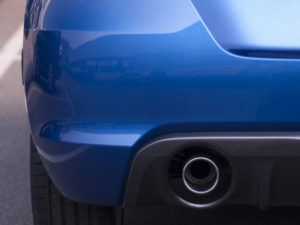Euro 6 diesels still not meeting Euro 5 NOx limits, says ICCT
Real-world NOx emissions from diesels are still exceeding EU levels, even for the newest, Euro 6 models.

Nearly all diesel vehicles on European roads today received a ‘poor’ rating, meaning they exceed Euro 5 diesel NOx emissions limits
That’s the finding of a new vehicle rating system launched by the International Council on Clean Transportation and available for everyone – including fleets – to access.
Dubbed the Real Urban Emissions Initiative (TRUE), the programme used remote-sensing technology and statistical analysis to measure and report real-world exhaust emissions profiles for EU passenger car models – approximately 4,850 vehicle models – slotting them into green/yellow/red (good/moderate/poor) categories to profile the European vehicle fleet as well as vehicle families and individual vehicle models.
The research – available to search online – found that nearly all diesel vehicles on European roads today received a ‘poor’ rating, meaning they exceed the Euro 5 diesel NOx emissions limits introduced in September 2009 – by up to 18 times the limit.
In contrast, all Euro 6 petrol cars, in contrast, received a ‘good’ or ‘moderate’ rating.
In particular, the report found that all Euro 6 diesel models rated exceeded the Euro 6 diesel NOX emissions limits measured in real-world driving, and the highest-emitting vehicle family has emissions 18 times the limit.
The highest-emitting petrol Euro 6 vehicle family has approximately the same level of NOx emissions as the lowest-emitting diesel vehicle family.
And four manufacturer groups had average emissions more than 12 times above the Euro 6 diesel type-approval limit.
The analysis also showed that Euro 5 diesel families performed particularly poorly: all had NOx emissions at least twice the limit, and the worst had emissions 18 times the limit.
The ICCT said its research provides a cost-effective, robust method of monitoring real-world vehicle pollutant emissions that is “difficult-to-impossible to cheat or game, and provides a more comprehensive picture of road transportation impacts on local air quality than is practically available by other means”. It added that remote sensing would be a next step that would help gain control of Europe’s urban air-quality problem – a TRUE remote-sensing campaign was recently carried out in London, with another due in Paris in June 2018.

